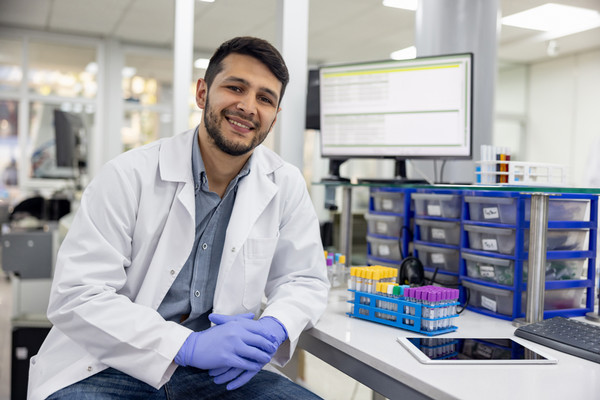So, you have a bachelor’s in clinical laboratory science (CLS)? What’s next?
Wednesday, June 04, 2025 | 8:00 AM

For many who practice as clinical laboratory scientists, it can be a struggle to recognize opportunities for advancement in an environment dominated by physicians and nurses. They have the visibility our profession lacks and a consequence of that is an apparent glass ceiling that can often seem unbreakable. However, that’s not actually the case if you have the drive and desire to continue your studies at the graduate level.
The truth is there are goals to aspire to for individuals who want to remain in the field and obtain a graduate degree. Perhaps the most obvious path is an administrative- or management-based one and nowadays, more and more administrative laboratory director positions indeed require a master’s degree. While laboratory manager positions are less likely to require a master’s degree, possessing one certainly offers an advantage over competitors without one who are seeking the same position. It also makes it that much easier to qualify for a director-level position after obtaining the requisite experience as a manager.
The Online Master of Science in Health Science program with a CLS track (MSHS-CLS) is ideal for individuals who want that advantage but are unable to attend classes in the traditional “brick and mortar” setting due to work and/or family commitments. Our classes are completely online and all asynchronous, meaning you can complete coursework at any time of the day or night (including weekends).
But what if I don’t want to be a director or manager?
At UTRGV, we recognize that not all applicants necessarily want to become laboratory directors or managers. In fact, numerous graduates of our program have gone on to pursue doctoral-level degrees like the PhD, EdD (Doctor of Education), DCLS (Doctor of Clinical Laboratory Science), and DHSc (Doctor of Health Science). That’s why our master’s program includes core courses that introduce students to proposal writing and research in healthcare. Although the program does not have a thesis option, these courses nevertheless expose individuals to graduate-level expectations for academic writing, as well as explorations of different research methodologies in place in healthcare.
The advent of the DCLS (mentioned above) has been a “game changer” in our field, with available opportunities for DCLS holders to become board-certified high-complexity laboratory directors (HCLDs). Just to fill you in, HCLDs occupy medical director roles traditionally restricted to MDs and PhDs. While the MSHS-CLS degree is not equivalent to a DCLS and does not qualify graduates to become HCLDs, it does strengthen your résumé if your goal is to stand out as a high-quality applicant to a DCLS (or other doctoral) program, but only have a bachelor’s. This is particularly the case as admission to DCLS programs like the one at University of Texas Medical Branch (UTMB) has become highly competitive in recent years.
What if I’m a certified medical laboratory scientist but my bachelor’s degree is in a field other than CLS and/or I have an associate’s in medical laboratory technology?
No problem. Provided you’re a registered medical laboratory scientist and you possess the requisite biology and chemistry undergraduate courses, this program is still ideal for you. Some of our graduates obtained bachelor’s degrees in fields other than CLS following completion of their associate’s degrees in medical laboratory technology and so long as they completed the undergraduate coursework required to sit for an MLS board exam (e.g., ASCP), they still qualify to apply for this program.
However, there might be instances when an individual’s status is uncertain due to situations like this. For example, DCLS programs require applicants to have a bachelor’s degree in CLS and do not accept applications from individuals with bachelors in other fields, regardless of whether they were able to qualify for MLS(ASCP) certification with the required biology and chemistry courses. UTRGV’s MSHS-CLS program bridges this gap by offering graduate-level courses in hematology, clinical chemistry, infectious diseases, immunohematology, pathophysiology of disease, and molecular diagnostics.
Why should I choose UTRGV’s MSHS-CLS instead of other master’s programs in CLS?
Well, for starters, UTRGV’s Online MSHS-CLS program is arguably the most affordable program of its kind in the nation with a total cost of approximately $16,000. In addition, its accelerated structure enables students to complete all coursework in 12 months whereas other master’s programs can require up to 2 to 3 years. This makes it an appealing choice for interested individuals across the country, and even outside the country (e.g., Canada).
Whether your goal is to become an administrative director, to improve your chances for admission into a doctoral program of your choice, to become faculty in a CLS/medical laboratory technology program, or simply to deepen your understanding of medical laboratory science through graduate-level courses, the MSHS-CLS program at UTRGV is simply unbeatable for working individuals in terms of cost and time commitment.
So, what are you waiting for? Apply today!
Have a question or concern about this article? Please contact us.
